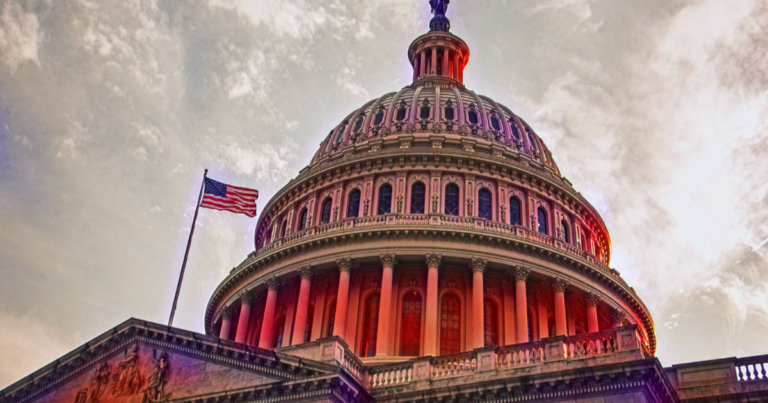 House Financial Services Committee chair renews call for stablecoin legislation after PayPal’s PYUSD announcement
House Financial Services Committee chair renews call for stablecoin legislation after PayPal’s PYUSD announcement House Financial Services Committee chair renews call for stablecoin legislation after PayPal’s PYUSD announcement
McHenry used the occassion to promote the Clarity for Payment Stablecoins Act.

Cover art/illustration via CryptoSlate. Image includes combined content which may include AI-generated content.
Representative Patrick McHenry, (R-NC), chair of the U.S. House Financial Services Committee Chairman, endorsed PayPal’s recently-announced stablecoin on Aug. 7.
McHenry said in a statement:
“[PayPal’s] announcement is a clear signal that stablecoins—if issued under a clear regulatory framework—hold promise as a pillar of our 21st century payments system.”
McHenry also used the announcement of PayPal’s stablecoin as an occasion to advance his Committee’s pro-stablecoin bill, the Clarity for Payment Stablecoins Act. The Financial Services Committee passed the bill on July 27 but has not been enacted into law.
McHenry said the bipartisan act recognizes state-level regulation of crypto companies and builds on state regulatory structures. He acknowledged the approach to crypto regulation taken by New York — a state that has regulated crypto companies intensely through its Department of Financial Services and Attorney General’s office.
McHenry also said that clear regulations and strong consumer protections can help stablecoins reach maximum potential. He said that the U.S. is “at a crossroads” that will determine whether it will remain a digital assets leader and urged Congress to enact legislation that provides comprehensive regulation in this area.
PayPal’s stablecoin faced regulatory challenges
This endorsement from the head of a major U.S. government group is important in light of the fact that PayPal seemingly faced regulatory issues at an earlier date. In February, Bloomberg suggested that PayPal had paused work on its yet-to-be-announced stablecoin project due to regulatory scrutiny from New York regulators.
Though the House Financial Services Committee does not have the authority to approve any such stablecoin, it is a crucial gatekeeper for financial legislation in the United States Congress, and its approval carries significant weight going into a full vote on the House floor.
PayPal publicly announced the launch of its stablecoin, PYUSD, earlier on Aug. 7. The asset will be offered through partnership with Paxos, which currently powers many of the company’s other cryptocurrency trading services.



























































